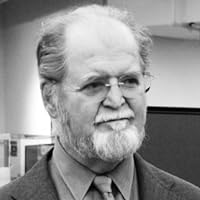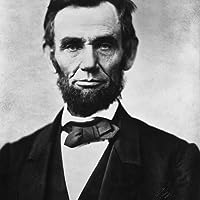Ethics Quotes
Quotes tagged as "ethics"
Showing 91-120 of 1,862

“For women especially, virginity has become the easy answer- the morality quick fix. You can be vapid, stupid, and unethical, but so long as you've never had sex, you're a "good" (i.e. "moral) girl and therefore worthy of praise.”
― The Purity Myth: How America's Obsession with Virginity is Hurting Young Women
― The Purity Myth: How America's Obsession with Virginity is Hurting Young Women
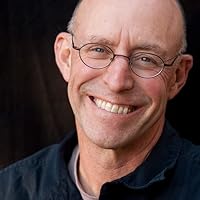
“Were the walls of our meat industry to become transparent, literally or even figuratively, we would not long continue to raise, kill, and eat animals the way we do.”
― The Omnivore's Dilemma: A Natural History of Four Meals
― The Omnivore's Dilemma: A Natural History of Four Meals
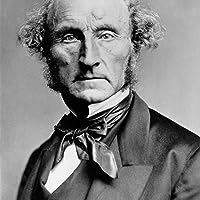
“The object of this Essay is to assert one very simple principle, as entitled to govern absolutely the dealings of society with the individual in the way of compulsion and control, whether the means used be physical force in the form of legal penalties, or the moral coercion of public opinion. That principle is, that the sole end for which mankind are warranted, individually or collectively in interfering with the liberty of action of any of their number, is self-protection. That the only purpose for which power can be rightfully exercised over any member of a civilized community, against his will, is to prevent harm to others. His own good, either physical or moral, is not a sufficient warrant. He cannot rightfully be compelled to do or forbear because it will be better for him to do so, because it will make him happier, because, in the opinions of others, to do so would be wise, or even right. These are good reasons for remonstrating with him, or reasoning with him, or persuading him, or entreating him, but not for compelling him, or visiting him with any evil, in case he do otherwise. To justify that, the conduct from which it is desired to deter him must be calculated to produce evil to someone else. The only part of the conduct of any one, for which he is amenable to society, is that which concerns others. In the part which merely concerns himself, his independence is, of right, absolute. Over himself, over his own body and mind, the individual is sovereign.”
― On Liberty
― On Liberty
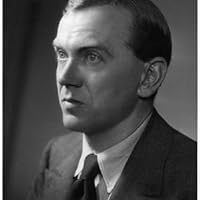
“I never knew a man who had better motives for all the trouble he caused.”
― The Quiet American
― The Quiet American

“Why should I give up revenge? On behalf of what? Moral principles? And what of the higher order of things, in which evil deeds are punished? For you, a philosopher and ethicist, an act of revenge is bad, disgraceful, unethical and illegal. But I ask: where is the punishment for evil? Who has it and grants access? The Gods, in which you do not believe? The great demiurge-creator, which you decided to replace the gods with? Or maybe the law? [...] I know what evil is afraid of. Not your ethics, Vysogota, not your preaching or moral treaties on the life of dignity. Evil is afraid of pain, mutilation, suffering and at the end of the day, death! The dog howls when it is badly wounded! Writhing on the ground and growls, watching the blood flow from its veins and arteries, seeing the bone that sticks out from a stump, watching its guts escape its open belly, feeling the cold as death is about to take them. Then and only then will evil begin to beg, 'Have mercy! I regret my sins! I'll be good, I swear! Just save me, do not let me waste away!'. Yes, hermit. That is the way to fight evil! When evil wants to harm you, inflict pain - anticipate them, it's best if evil does not expect it. But if you fail to prevent evil, if you have been hurt by evil, then avenge him! It is best when they have already forgotten, when they feel safe. Then pay them in double. In triple. An eye for an eye? No! Both eyes for an eye! A tooth for a tooth? No! All their teeth for a tooth! Repay evil! Make it wail in pain, howling until their eyes pop from their sockets. And then, you can look under your feet and boldly declare that what is there cannot endanger anyone, cannot hurt anyone. How can someone be a danger, when they have no eyes? How can someone hurt when they have no hands? They can only wait until they bleed to death.”
― Wieża Jaskółki
― Wieża Jaskółki

“The creed which accepts as the foundation of morals, Utility, or the Greatest-Happiness Principle, holds that actions are right in proportion as they tend to promote happiness, wrong as they tend to produce the reverse of happiness. By happiness is intended pleasure, and the absence of pain; by unhappiness, pain, and the privation of pleasure.”
― Utilitarianism
― Utilitarianism

“There is one and only one social responsibility of business–to use it resources and engage in activities designed to increase its profits so long as it stays within the rules of the game, which is to say, engages in open and free competition without deception or fraud”
―
―

“I will call no being good who is not what I mean when I apply that epithet to my fellow creatures; and if such a creature can sentence me to hell for not so calling him, to hell I will go .”
― An examination of Sir William Hamilton's philosophy, and of the principal philosophical questions discussed in his writings
― An examination of Sir William Hamilton's philosophy, and of the principal philosophical questions discussed in his writings
“Nobody can turn you into a slave unless you allow them. Nobody can make you afraid of anything, unless you allow them. Nobody can tell you to do something wrong, unless you allow them. God never created you to be a slave, man did. God never created division or set up any borders between brothers, man did. God never told you hurt or kill another, man did. So why is man your god, and not the Creator?”
― Rise Up and Salute the Sun: The Writings of Suzy Kassem
― Rise Up and Salute the Sun: The Writings of Suzy Kassem

“The labours of men of genius, however erroneously directed, scarcely ever fail in ultimately turning to the solid advantage of mankind.”
―
―

“Do not injure, abuse, oppress, enslave, insult, torment, torture, or kill any creature or living being.”
―
―
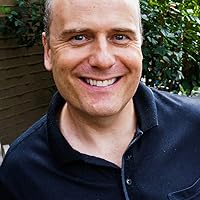
“When people have invested their identities into clichés, the only counter argument they have is 'being offended'.”
―
―
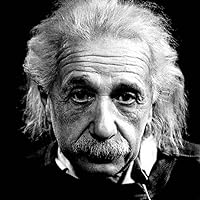
“I do not believe in the immortality of the individual, and I consider ethics to be an exclusively human concern without any superhuman authority behind it.”
―
―

“Androids with Artificial Intelligence have no heart or soul. They will make our perfect masters.”
―
―

“Whether a man is a criminal or a public servant is purely a matter of perspective.”
― Another Roadside Attraction
― Another Roadside Attraction

“So far as I can tell, most worthwhile pleasures on this earth slip between gratifying another and gratifying oneself. Some would call that an ethics.”
― The Argonauts
― The Argonauts

“The symbolism of meat-eating is never neutral. To himself, the meat-eater seems to be eating life. To the vegetarian, he seems to be eating death. There is a kind of gestalt-shift between the two positions which makes it hard to change, and hard to raise questions on the matter at all without becoming embattled.”
― Animals and Why They Matter
― Animals and Why They Matter

“In the simple moral maxim the Marine Corps teaches
— do the right thing, for the right reason
— no exception exists that says: unless there's criticism or risk. Damn the consequences.”
― Mission Al-Jazeera: Build a Bridge, Seek the Truth, Change the World
— do the right thing, for the right reason
— no exception exists that says: unless there's criticism or risk. Damn the consequences.”
― Mission Al-Jazeera: Build a Bridge, Seek the Truth, Change the World
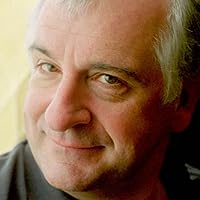
“Despite the fact that an Indonesian island chicken has probably had a much more natural life than one raised on a battery farm in England, people who wouldn't think twice about buying something oven-ready become much more upset about a chicken that they've been on a boat with, so there is probably buried in the Western psyche a deep taboo about eating anything you've been introduced to socially.”
― Last Chance to See
― Last Chance to See

“The first and most important field of philosophy is the application of principles such as “Do not lie.” Next come the proofs, such as why we should not lie. The third field supports and articulates the proofs, by asking, for example, “How does this prove it? What exactly is a proof, what is logical inference, what is contradiction, what is truth, what is falsehood?” Thus, the third field is necessary because of the second, and the second because of the first. The most important, though, the one that should occupy most of our time, is the first. But we do just the opposite. We are preoccupied with the third field and give that all our attention, passing the first by altogether. The result is that we lie – but have no difficulty proving why we shouldn’t.”
― The Art of Living: The Classical Manual on Virtue, Happiness and Effectiveness
― The Art of Living: The Classical Manual on Virtue, Happiness and Effectiveness

“War as a moral metaphor is limited, limiting, and dangerous. By reducing the choices of action to “a war against” whatever-it-is, you divide the world into Me or Us (good) and Them or It (bad) and reduce the ethical complexity and moral richness of our life to Yes/No, On/Off.”
― A Wizard of Earthsea
― A Wizard of Earthsea

“At every period of history, people have believed things that were just ridiculous, and believed them so strongly that you risked ostracism or even violence by saying otherwise. If our own time were any different, that would be remarkable. As far as I can tell it isn't.”
―
―

“Our creed [atheism] is indeed a queer creed. You others, Christians (and similar people), consider our ethics much inferior, indeed abominable. There is that little difference. We adhere to ours in practice, you don't.”
― A Life of Erwin Schrödinger
― A Life of Erwin Schrödinger

“Without man and his potential for moral progress, the whole of reality would be a mere wilderness, a thing in vain, and have no final purpose.”
― Perpetual Peace
― Perpetual Peace
All Quotes
|
My Quotes
|
Add A Quote
Browse By Tag
- Love Quotes 97k
- Life Quotes 75.5k
- Inspirational Quotes 72.5k
- Humor Quotes 43.5k
- Philosophy Quotes 29.5k
- Inspirational Quotes Quotes 27k
- God Quotes 26k
- Truth Quotes 23.5k
- Wisdom Quotes 23.5k
- Romance Quotes 23k
- Poetry Quotes 22k
- Death Quotes 20k
- Happiness Quotes 18.5k
- Life Lessons Quotes 18.5k
- Hope Quotes 18k
- Faith Quotes 18k
- Quotes Quotes 16.5k
- Inspiration Quotes 16.5k
- Spirituality Quotes 15k
- Religion Quotes 15k
- Motivational Quotes 15k
- Writing Quotes 14.5k
- Relationships Quotes 14.5k
- Life Quotes Quotes 14k
- Love Quotes Quotes 13.5k
- Success Quotes 13.5k
- Time Quotes 12.5k
- Motivation Quotes 12k
- Science Quotes 11.5k
- Knowledge Quotes 11k

